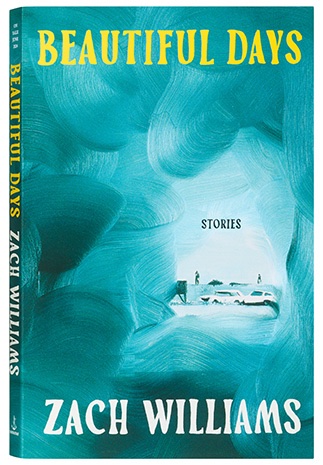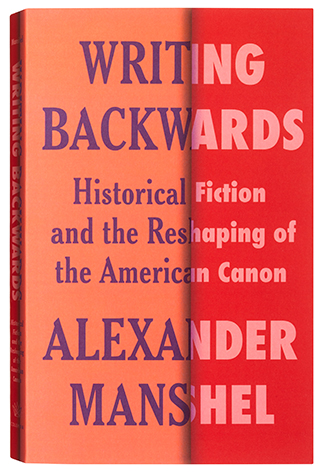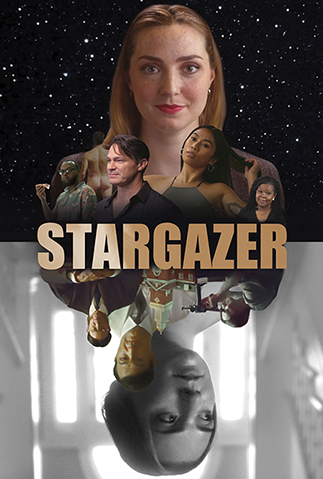
BEAUTIFUL DAYS
Zach Williams
In his debut collection of short stories, Zach Williams, MA English ’14 introduces tales that are at once elegant and disquieting. Exploring the absurdities of the human condition in strange and mystical ways, Williams unfolds 10 stories that defy logic and the expected with exquisite, witty, and musical prose. In one, a couple wakes in a home in the woods to find themselves rapidly aging while their toddler remains unchanged. In another, a work-worn employee navigates conspiracy theories and the threat of violence in an abandoned office. The fallibility of time and the questionable aspect of reality permeate each narrative, and as one Boston Globe reviewer says, “The stories’ subjects seem to have bubbled up from a fertile, teeming, uninhibited subconscious.” Williams’s tales will shake you and amaze you and keep you thinking about them long after you have finished the book.

WRITING BACKWARDS
Alexander Manshel
The idea for his book, Writing Backwards: Historical Fiction and the Reshaping of the American Canon, came to Alexander Manshel ’09, MA English ’14 when he discovered that the most prized and studied novels in contemporary fiction were set in the historical past: in fact, a lot of what has been called literary fiction over the past five decades is historical fiction. In researching and writing about different authors, he also found that the shift to historical fiction has been “particularly dramatic for writers of color,” who have been incentivized to write about the past by key cultural institutions that fund, publish, prize, teach, and canonize literary fiction. His book explores how these institutions have diversified and recognized minoritized writers and have also reorganized themselves around the value of the past. He argues that, as a result, the American literary canon has undergone a major transformation. His is an argument well worth paying attention to.

LAST DAYS IN PLAKA
Henriette Lazaridis
Author Henriette Lazaridis ’82 is back with another enthralling novel. After captivating us with Terra Nova, she again weaves a story that brings together richly drawn characters whose interactions unfold in a compelling narrative. A young Greek American woman, Anna, travels to Athens, where she finds work at an art gallery and makes street art—all the while looking to connect with her parents’ heritage. Along the way she meets Irini, an older Greek woman with a complicated past, and the two form an unlikely friendship. Their relationship develops as Anna becomes mesmerized by the tales Irini tells her and comes to realize the secrets and lies that are at the heart of Irini’s life. Lazaridis unfolds and exposes the underpinnings of each woman’s yearnings and, in the end, explores the limits of forgiveness, the nature of youth and complexity of the elderly, and the extent to which these characters are transformed by their female connections.

STARGAZER
Rob Ackerman
Screenwriter and producer Rob Ackerman ’80 has been involved in the movie business off and on over the years, and his latest endeavor is Stargazer, a 2024 indie film he cowrote and produced, working with director Alan McIntyre. He was inspired to write the screenplay after reading about forgotten astronomer Cecilia Payne, who made intriguing discoveries in the 1920s about the nature of the universe, only to have her work discredited then stolen by male colleagues. His modern-day main character, Grace, is a grad student who is determined to revive Payne’s reputation and make her genius known. As she attempts to pitch her story, she’s forced to partner with male journalist Spike, whose interest in the story is more mercenary but whose methods are effective. During one fantastical night in the university library, Grace meets a dancer who helps her flash back to Cecilia’s life at Harvard and gives her perspective on whether she should continue with the help of Spike or fight for Cecilia’s story herself. Compelling characters and a clever use of set design make the movie a memorable and enjoyable viewing experience.

MAYOR’S DESK
Anthony Flint
Over the past five years, Anthony Flint ’84 has traveled around the world, interviewing municipal chief executives, from the mayor of Burlington, Vermont, to the mayor in Freetown, Sierra Leone. The result is his book, Mayor’s Desk: 20 Conversations with Local Leaders Solving Global Problems. Flint questioned these city leaders about the issues that face them all, including land use, zoning, housing, transportation, spatial equity, sustainability, and climate change. Each mayor is working to create climate-resilient, equitable cities where citizens can grow and thrive, and Flint found that they are approaching their work with energy and innovation. With these conversations in one accessible book, leaders can learn from each other and see how others have implemented new strategies for challenging issues. As Michael Bloomberg states in the introduction, being a mayor is a difficult job. “But it’s also where public servants with great ideas—and some courage—can have an enormous impact on their communities and beyond.”

Leave a Reply